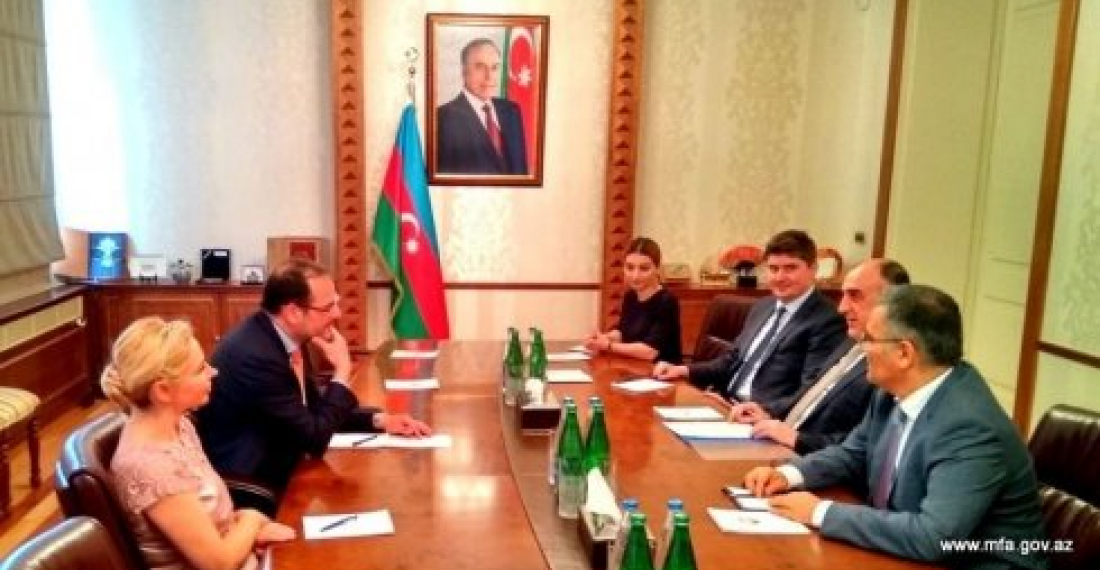- Armenia-Azerbaijan Strategic Expert Platform: Members emphasise the importance of the present moment for the South Caucasus and call for the momentum to be used for the long-term peace and prosperity of the region
- Thursday Interview: Dr. Anar Valiyev
- Food insecurity in Somalia has nearly doubled in the past year
- Türkiye evaluating potential measures in case of a US-Iran conflict
- European Parliament reaffirms support for Ukraine and EU Path
- EU moves ahead with Ukraine loan preparations despite Hungarian block

Another round of negotiations between Azerbaijan and the European Union on the proposed new partnership agreement between the two sides, took place in Baku this week. After the discussions, the head of the European Union delegation, Luc Devigne, Director for Russia, Eastern Partnership, Central Asia and OSCE of the European External Action Service, also had a meeting with Azerbaijani Foreign Minister Elmar Mammadyarov.
A statement on the website of the Azerbaijani Foreign Ministry stated that "the sides expressed their satisfaction with the constructive and intensive pace of negotiations on the draft partnership agreement. It was noted that at this round of negotiations the main focus of discussion was political and trade issues".
"They expressed their hope that as a result of the talks conducted in an atmosphere of mutual understanding the draft partnership agreement will be finalized by the Summit Meeting of the European Union Eastern Partnership countries to be held at the end of this year. At the meeting the sides also exchanged views on the current status of relations and prospective development of cooperation between Azerbaijan and the EU. It was noted that recently held Azerbaijan - EU Business Forum provided new opportunities for further development of mutually beneficial economic, trade and investment cooperation".
The statement added that during the meeting, regional issues were also discussed. "Minister Mammadyarov stressed the importance of a unified approach by EU with respect to the resolution of protracted conflicts based on the principles of respecting to the territorial integrity and sovereignty of states within internationally recognized borders, as it is enshrined in the Global Strategy of EU", the foreign ministry statement added.
The Azerbaijani news agency APA, quoted senior official at the EU delegation in Baku, Denis Danilidis, as saying that the talks had been "succesful", and that "both sides are committed to reaching an agreement as soon as possible".
In the meantime it has been confirmed that EU Commissioner for European Neighborhood Policy and Enlargement Negotiations Johannes Hahn will visit baku on June 16. Discussions are expected to focus on various aspects of EU-Azerbaijan cooperation "with a particular focus on transport, trade, and connectivity issues", according to Azerbaijani sources. Latest statoistics published this week show that the European Union remains Azerbaijan's largest trading partner, with just under 40% of total trade turnover. In comparison trade with Russia and other CIS countries amounted to 12% of total trade turnover.
source: commonspace.eu
photo: European External Action Service senior official Luc Devigne, and EU Ambassador in Baku, Malania Mard with the Foreign Minister of Azerbaijan, Elmar Mammadyarov in baku on 14 June 2017 (picture courtesy of the press service of the Ministry of Foreign Affairs of Azerbaijan.








